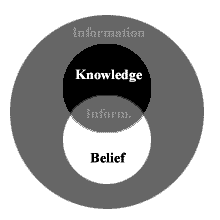Here in a nut shell.
Creation was very wise, in warning against the knowledge of good and evil. The forbidden fruit was science, and the early scientists were rightfully
persecuted and even put to death.
It is not the individual that the wise fathers talked about, because they probably knew the false sense which individuality would mean to the people of the future. In fact Buddhist philosophy , exemplified the self, as the biggest con of human history. Aribundo prior to the advent of science, knew the fragility of the brief span of human life.
But science shortened life, in an increasingly quantified mode, while at the same time de-qualified faith in a logical way , the faith, in a formalized analytically deduced possibility in the redemptive, Romantic process of an aesthetic of formally arranged
Creative power.
In stead, it destabilized this carefully structured system. The early wise men, prophets, and visionaries saw this trap, and hence they instituted advanced scientific techniques toward a de-stabilization of such faith. The idolized science, by destroying the idols who heretofore protected the vested prescriptions.
The impermanence and fragility of the self came to represent the coming general angst of modernity, and the more enlightened science became, the more unstable and uncertain did social artifacts effect the stability of the world.
Long term, if we survive, the wise men, who still abound within us, will plant another innocent humanity, by transplanting a new generation of beginners, in order to build a new, pure and faithful world.
It is the Creation which matters, the continuation of what we call higher consciousness within the creative energies of a this Unified God. He is immortal, as we are, in terms of viewing individuality as a matter of participation within the unbroken cosmic energy within which we all dwell.
Even in the absence of this realization, God, therefore us, we cannot die, but we will be reborn in the vast stretches of the eternal infinity, but with a difference:
We will not have access to basic referential systems, such as the bible, and we will start without a clue, and reject again the idea of redemption and the possibility of an aesthetic of permanence.
The two scenarios are vastly different, and this is why, it is of the utmost importance to find other planets in other worlds to live in, because only a few will be accommodated, and chosen, a repeat of the Noah scenario.
That this can be done, is shown by the general interest specifically with the recent EURO-RUSSIA joint launch of a rocket to Mars, there is significance in the international space project and science’s own sense of it’s need for it’s urgent redemption.
That science , as we have learned it here on earth is only a very brief Zen koan, which the cosmic winds could destroy in the very briefest non appearent time, leaves little doubt as to the grand wisdom of differing descriptions of universal wisdom.
This is why, or part of the reason, philosophy cannot be destroyed by the post modern experience, and this is why the very earliest mirroring of the philosophy of transcendence must revert it’s focus unto the romantic idioms of descriptions.
At this time, only juxtapositioning is the only method by which this can be accomplished, the cutting up and the re-assemblage of the real and the unreal, the mythical and the most remotely modern. The later has no root, tradition, it is becoming the automata, which can very easily be subordinated below the animal, or even the sub animal.
The disaster of loosing man’s soul can only be rehabilitated, by a juxtaposition of primitive and highly sophisticated forms , by commuting the most difficult form of communion, best described as participation mystique.
This indeed is the last form of development, and all of the tools are available, because they were well described in the not too distant past, albeit as formless patches of description. As the coming confusion overtakes the coming years, let them be lessons, rather then outdated formulas of irrelevant hypothesis.
The evil can yet be excorcized, and the renewing redemptive forces may yet, do their job.
But by all means, by incalculable effort, we can re-claim the keys to a paradise lost.
